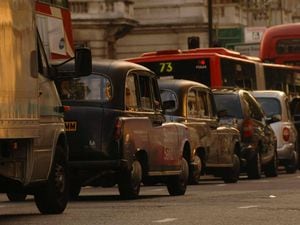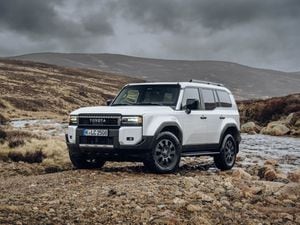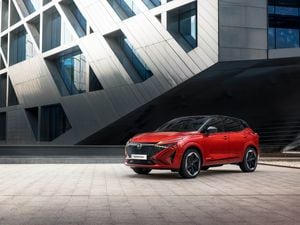More traffic and SUVs are slowing UK’s zero-emission plans
Uptake of low-emission vehicles is also being cancelled out by increased car use.

The UK’s plan for a zero carbon road network is being hampered by an increased uptake in SUVs, more traffic on the road and a surge in car usage.
Research by the National Audit Office (NAO) shows that the total carbon emissions from passenger cars has dropped just one per cent since 2011, which is lower than the Department for Transport anticipated.
It does note, though, that as well as the reasons listed above, the method for estimating carbon emissions has been revised.
In November, the government announced that from 2030, vehicles powered solely by petrol or diesel can no longer be sold, and has a goal of seeing almost all cars emitting zero carbon by 2050.

Gareth Davies, head of the NAO, said: “The number of ultra-low emission cars on UK roads has increased, but meeting the government’s ambitious targets to phase out new petrol and diesel cars in less than a decade still requires a major transition for consumers, car makers and those responsible for charging infrastructure.
“Government now has the opportunity to reflect on what has gone well and better target its interventions and spending to secure this fundamental change and deliver the carbon reduction required.”
By September 2020, ultra-low-emission vehicles (ULEVs) represented just 1.1 per cent of vehicles on the road, of which about 0.5 per cent was electric. The new car market does paint a more positive picture of the switch to ULEVs, though – although the overall market share is small it is steadily increasing, accounting for eight per cent of the market by September 2020. That’s above projections from the Office for Zero Emission Vehicles (OZEV).
OZEV provides the plug-in car grant, which gives buyers of electric vehicles up to £3,000 off the price of a new car. It had spent £1 billion on the grant by March 2020, but the NAO said “OZEV cannot clearly demonstrate the cumulative impact the grant has had on the growth of ultra-low emission cars above and beyond what might have happened anyway”.
Furthermore, OZEV has provided around £100m towards the installation of charge points, mostly on private driveways.
In December 2020, the NAO published a report stating that while the plan to deliver net zero emissions by 2050 had ‘helped to galvanise the automotive industry to change’, the lack of long-term planning by the government was hindering investment planning.





